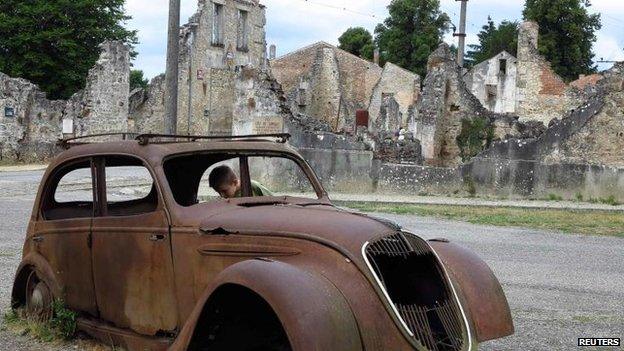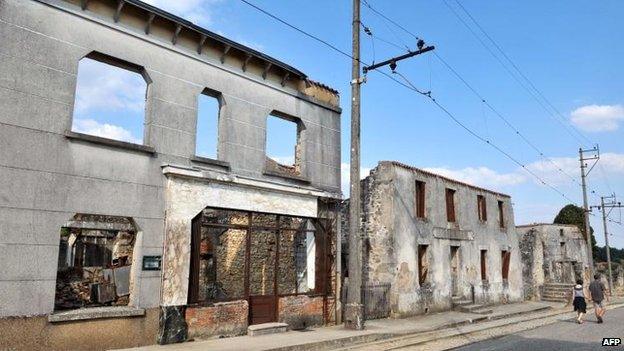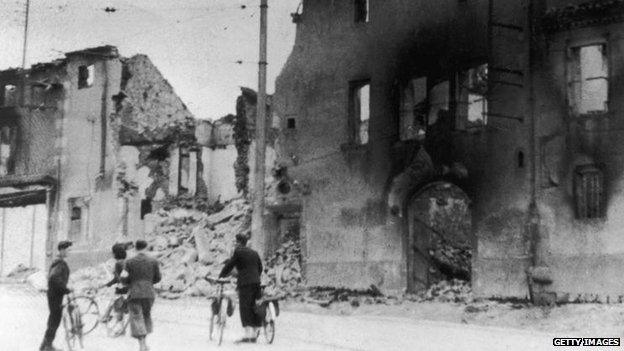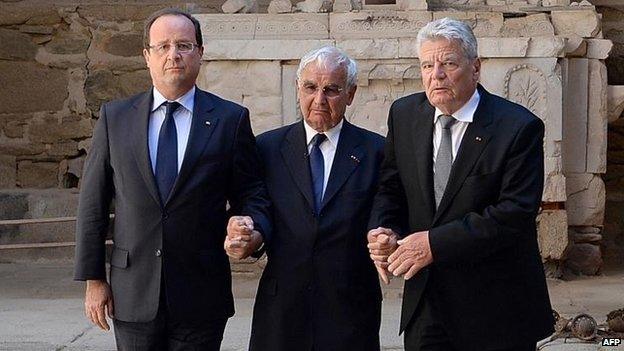German man charged over WW2 Oradour massacre in France
- Published

The ruins of the village have been preserved just as they were after the massacre
An 88-year-old German man has been charged with involvement in one of the most infamous World War Two massacres.
The charges relate to Oradour-sur-Glane in central France, where 642 people were murdered by SS troops in 1944.
Many were herded into a local church into which hand grenades were thrown before it was set on fire.
Prosecutors in Dortmund said the man had been charged over the murder of 25 people and with aiding and abetting the murder of several hundred.
The ruins of the village have been preserved just as they were after the massacre, as a permanent memorial.
French leader General Charles de Gaulle said it should be a reminder of the cruelty of the Nazi occupation.
Some 60 soldiers were brought to trial in the 1950s. Twenty of them were convicted but all were later released.
Doused in petrol
German investigators said last year they had opened a new inquiry into the massacre.

On Wednesday, the regional court in Cologne said: "The prosecutor's office in Dortmund has charged an 88-year-old from Cologne over the murder of 25 people committed by a group, and with aiding and abetting the murder of several hundred people."
The man was named in documents as Werner C, a former member of an SS armoured division who was 19 at the time.
His lawyer, Rainer Pohlen, told the Associated Press news agency his client was at the village but had nothing to do with the massacre.
Dortmund state prosecutor Andreas Brendel said the accused was among six men still facing possible prosecution.
On 10 June 1944, a detachment of SS troops had surrounded the tiny hamlet in the Limousin region.
Oradour-sur-Glane was left untouched following the 1944 massacre
It is believed by some that they were seeking retribution for the kidnap of a German officer but some say that resistance members were based in a different, nearby village.
Most of the victims were women and children.
The men had been locked in a barn. Machine-gunners shot at their legs, then doused them in petrol and set them alight.
The landmark 1970s documentary series, The World at War, both begins and ends with references to Oradour-sur-Glane.
Last September German President Joachim Gauck travelled to the village and joined hands with one of the survivors and with French President Francois Hollande, as a sign of reconciliation.

General Charles de Gaulle said the village should be a reminder of the cruelty of the Nazi occupation

Some 60 soldiers were brought to trial in the 1950s

Francois Hollande (left) with German counterpart Joachim Gauck (right) and survivor Robert Hebras in September 2013
- Published30 January 2013
- Published22 January 2013